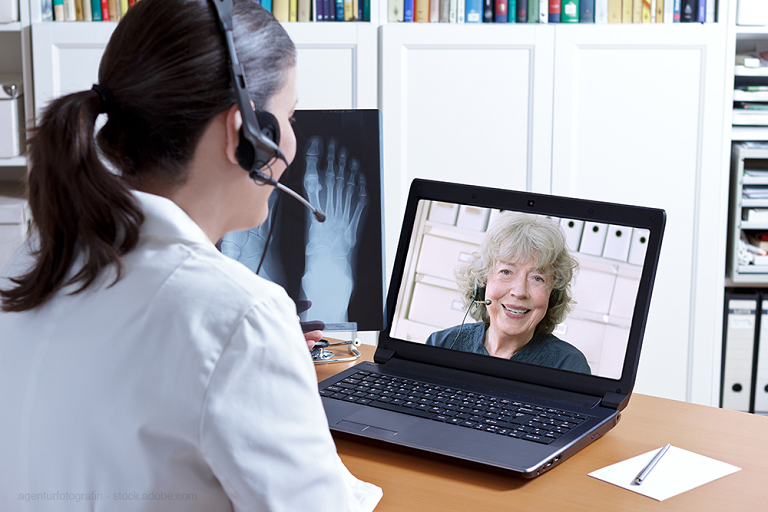The COVID-19 pandemic is changing consumer perspectives towards telehealth. However, data indicates groups facing the greatest risks right now, including older people and those with lower incomes, are not sharing in these benefits equally. Those were among the results of a Black Book and Sage Growth Partners survey of 591 U.S. healthcare consumers, which also found stress and social isolation are still fueling demand for remote behavioral and mental health services.
The survey found the majority of respondents (78%) who have used telehealth were satisfied with their experience, although older adults are reluctant to use telehealth – the overwhelming majority of consumers age 55 to 64 (81%) and age 65+ (84%) who have access to telehealth have not had a virtual or telemedicine visit.
According to the study, only 36% of people making less than $25,000 say they have access to telehealth, but this age rises as income rises. More than half (55%) of people making $50,000 to $100,000, 70% of those earning $100,000 to $200,000 and 70% of those with an income of more than $200,000 have access.
“For many years, the biggest hurdle was telehealth being viewed as a distant second form of accessing care,” Dan D’Orazio, CEO of Sage Growth Partners, told Healthcare IT News. “This pandemic has done more in the last nine weeks than the last ten years for adoption – and that will likely to continue as consumers feel unsafe returning to physical locations for care.” He noted, however, that just as consumers aren’t treated equally in other industries, that also shouldn’t be the same case here.
“Those provisioning and paying for care, in this case telemedicine – maybe we now just call it ‘medicine’ – should appreciate that there are different needs among users by age, gender, and income, and where they live,” D’Orazio explained. He pointed out a “one size fits all” approach for telehealth will disappoint, and said virtual care alone won’t wash away the ills of insurance coverage, social determinants of health, healthcare and digital literacy. “Failing to account for the distinct needs of patient populations may lead to lower access and utilization – which can further widen gaps in health status,” he said.
D’Orazio said he was encouraged that providers in specialty care are taking the opportunity to embrace virtual care, beyond already accepted use cases like tele-stroke and telepsychiatry. “We also expect to see telehealth use grow for primary care, urgent care and chronic care management,” he said. “We have no doubt that telehealth adoption will continue to grow. The ratio between on-premise care and virtual care will continue to shift, perhaps not toward equilibrium, but more in that direction.” The pandemic has proven the “generalizability of telehealth,” the CMIO of NYU Langone Health, where virtual visits have skyrocketed, recently proclaimed. Meanwhile, HHS recently awarded $20 million to increase telehealth access.

































